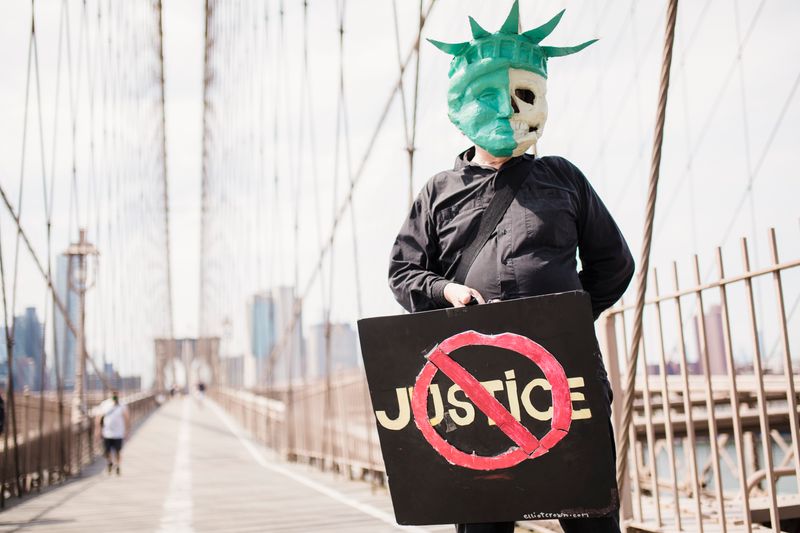Table of Contents
The Unfair and Politically Motivated Trial of Osman Kavala and Co-defendants
A Gravely Unjust Trial
A group of nine non-governmental organizations, including Amnesty International, has released a statement denouncing the prosecution of human rights defender Osman Kavala and four co-defendants as unfair and essentially a political show trial. The trial, which saw Kavala sentenced to life in prison without parole, is seen as a prime example of how Turkey‘s justice system has become a tool of political repression.
The charges against Kavala and his co-defendants stem from their alleged involvement in the mass protests that took place in Istanbul’s Gezi Park in 2013. The Court of Cassation, Turkey‘s top appeals court, upheld the convictions despite the fact that the European Court of Human Rights had found no basis for their detention or trial, and had ordered Kavala’s immediate release.
The refusal to comply with the European Court’s judgments and Turkey‘s human rights obligations highlights the deep injustice of this case and the deviations from the rule of law in Turkey. It is a chilling example of how Turkey‘s justice system is being manipulated for political purposes.
A Tool of Political Repression
Despite claims by President Recep Tayyip Erdogan and Turkish government officials that Turkish courts are independent, the trial of Kavala and his co-defendants exposes those claims as false. In key cases of interest to the president, prosecutors and courts blatantly do his bidding.
The Court of Cassation’s 78-page verdict simply reiterates the prosecution’s allegations without providing any new evidence. The European Court of Human Rights had ruled twice that the indictment offered insufficient evidence to justify Kavala’s detention, prosecution, or conviction, and by inference, the other defendants’.
The Cassation Court’s decision, which ignores the European Court’s findings, demonstrates a rejection of Turkey‘s European and international obligations. This rejection should be condemned by Turkey‘s allies, including the Council of Europe, the European Union, and the United Nations.
It is essential that Turkey respect and abide by its human rights obligations and rule of law principles. Efforts to address this injustice should be robust, with a focus on ensuring the defendants’ immediate release and the swift and full implementation of the European Court’s judgments.
The Court’s Flawed Reasoning
The Court of Cassation’s decision in this case is deeply flawed. It relies on a chronology of events included in the prosecution’s indictment to make a connection between Kavala’s lawful activities and the Gezi protests. However, the court fails to show any causality or provide evidence to support the claim that Kavala and his co-defendants were involved in a conspiracy.
The court also references protests and uprisings in other Middle Eastern countries, as well as non-violent civil disobedience movements in Serbia, without demonstrating their relevance to the case. The decision alleges that civil society organizations supported and directed the Gezi Park protests, but provides no evidence to support this claim.
Notably, the court repeats a conspiracy theory from the original indictment, linking George Soros’s organizations, including the Open Society Foundation, to a plot to overthrow governments in various countries. Kavala’s civil society group, Anadolu Kültür A.Ş., and its affiliates are also targeted in the decision.
The court’s decision allows illegally obtained wiretapped conversations as admissible evidence, despite the fact that they reveal the defendants’ lawful engagement in civil society organizations and non-violent activism. These activities are protected under international law and Türkiye’s own laws.
Furthermore, the court rejects parliamentary immunity for one of the defendants, Can Atalay, despite the Constitutional Court’s rulings on similar cases. This decision demonstrates a disregard for the rule of law and undermines the principle of parliamentary immunity.
Urgent Action Needed
The urgent debate at the Parliamentary Assembly of the Council of Europe on October 12 provides an opportunity for Türkiye’s European and international allies to address this injustice.
It is crucial that Türkiye’s allies treat this case as a priority human rights matter in their mutual relations with Türkiye. They should push for the swift and full implementation of the European Court’s judgments, including the immediate release of the defendants.
The abuse of criminal law against activists, human rights defenders, journalists, and others in politically motivated cases should be firmly condemned. Türkiye must be held accountable for its violations of human rights obligations and the flouting of the rule of law principles.
Moreover, the Court of Cassation’s disregard for the European Court’s judgments and its constitutional obligation to adhere to binding decisions must be addressed. The international community should not turn a blind eye to these violations. Türkiye’s allies must take a stand and demand that Türkiye respects the rule of law and abides by its international obligations.
The case against Osman Kavala and his co-defendants is a stark example of the erosion of democracy and the rule of law in Türkiye. It is a test for the international community’s commitment to defending human rights and upholding justice. Failure to act urgently and decisively could set a dangerous precedent and contribute to the further erosion of human rights in Türkiye and beyond.

<< photo by Life Matters >>
The image is for illustrative purposes only and does not depict the actual situation.
You might want to read !
- Beirut Blast Investigation Under Scrutiny: International Concerns Mount
- Turkey’s Top Court Upholds Controversial Life Sentence for Rights Defender
- Syria Torture Case: An Urgent Test for International Justice
- Amnesty International Urges Niger to Release Detained Journalist Samira Sabou
- An Ode to Osman Kavala: Council of Europe Prize Shines Light on a Lingering Injustice
- Upholding sentence against Osman Kavala and four other Gezi defendants: An alarming assault on justice and democracy in Turkey
- The Continued Assault on Civil Liberties: Turkey’s Devastating Verdict against Osman Kavala and the Gezi Defendants
- Crisis in Tunisia: Challenging the Fabricated Charges Against Political Dissidents
- New Title: Amidst Escalating Tensions, A Deadly Hamas-Led Attack Devastates Southern Israel